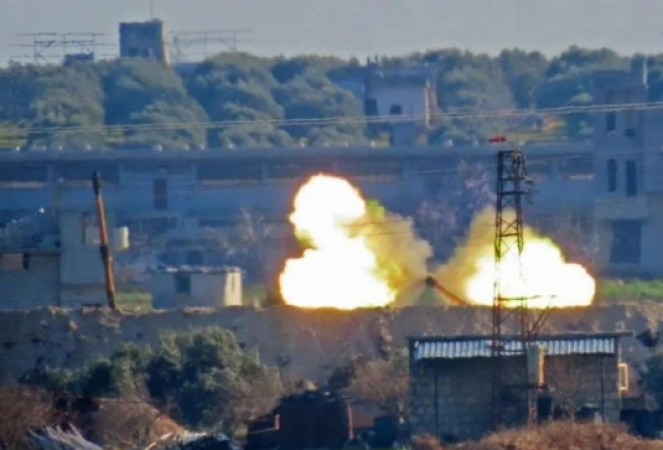
BEIRUT: Commercial breaks made by a Dutch company for Turkish ambulances actually ended up in the country's missiles used in attacks in northeastern Syria, according to a report published on Tuesday.
Field researchers from Conflict Armament Research, a London-based company, examined the remains of 17 air-to-surface missiles used in attacks in northeast Syria between September 2021 and June 2022.
according to the report. According to an analysis of the wreckage parts, the missiles were made by Turkish defense company Roketsan.
The electromagnetic brake in the missiles had markings and characteristics consistent with production by "(Netherlands-based company) Kendian NV" and were made by US, Chinese and European firms, the report said.
Also Read: Houthi officials have been charged with mistreating and excluding "critically ill" journalists.
The report said the company had agreed in 2018 to provide 20-25,000 brakes to a Turkish company called FEMSAN, with the aim of using them on blood analysis machines installed in ambulances. According to the report, Kendrian announced that it had severed its business relationship with the Turkish firm because the brakes were being used in military applications.
Also Read: 'Luring people by donating food is a very serious problem', says SC on conversion
Rocketson representatives were unable to be reached for comment, and Fameson did not immediately respond to a request for comment.
The study comes ahead of recent airstrikes by Turkey in northeastern Syria, which began last month in retaliation for a deadly bombing in Istanbul on November 13 that Ankara accuses of being the work of Syrian Kurdish groups, which they deny. We do. A ground invasion has also been threatened by Turkish President Recep Tayyip Erdogan.
Also Read: Palestinian health officials report the death of a man during an Israeli raid in the West Bank.
The report states that "the European Union has never been subject to sanctions at the multilateral level since 2011 (Turkey) related arms stockpiles from Syria," so it did not allege that the suppliers of missile parts violated any law. is broken.
The case "highlights both the critical importance and relative complexity of business due diligence for these types of materials," the article continued, adding that such materials "can serve a number of purposes, some of which The manufacturer may not even know, and that can be extremely sensitive."